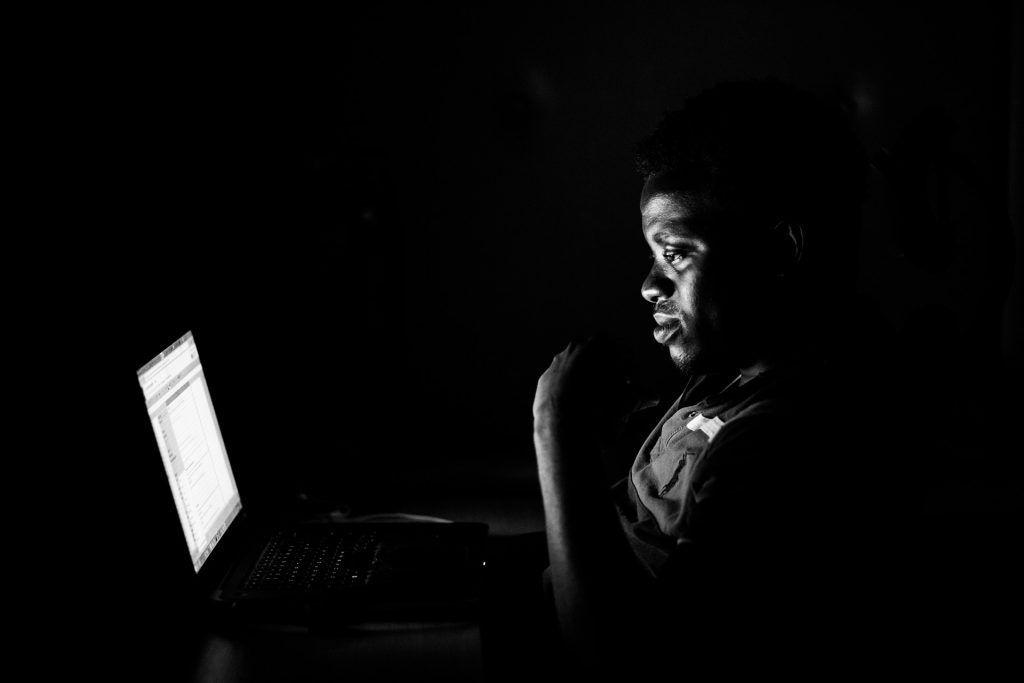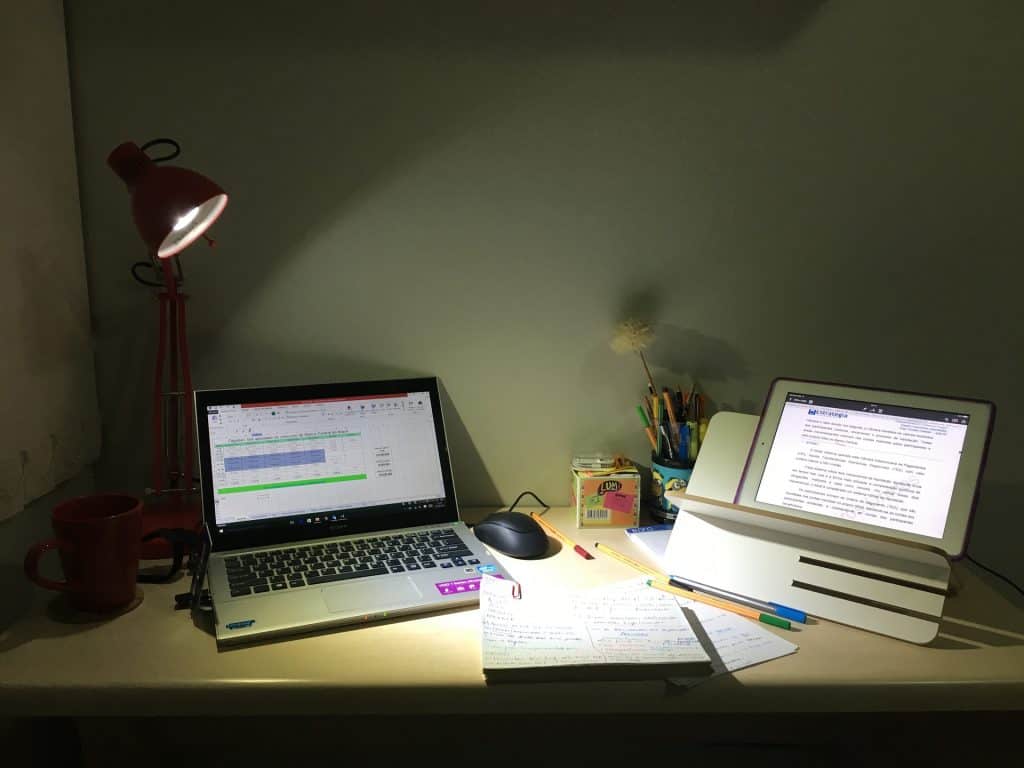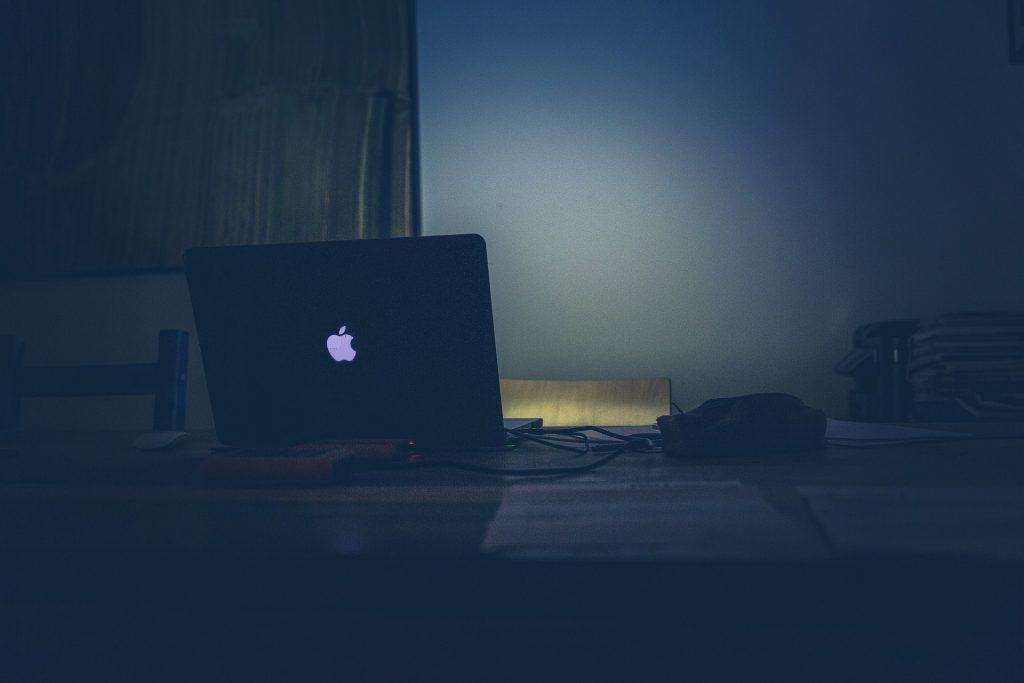🖊 This article was last updated on November 21, 2019
You’ve probably heard about that thing called “blue light” emitted by your mobile phone. You may be feeling bothered by its possible effects on your sleep and your health.
While more studies still need to be done to determine whether blue light damages the eyes, experts agree that blue light has a disruptive effect on our sleep. This becomes even more important as more and more people are reporting chronic sleep loss, which has been linked with low productivity and road accidents, as well as depression, obesity, and heart disease.
In this article, I will give a brief description of blue light and its sources, health benefits (yes, it has several), and how it affects our sleep-wake cycle.

If you’re wondering if blue light filter apps actually minimize blue light exposure, the short answer is yes. I cover this at the end of my post, plus other bedtime habits you can adopt to get a restful sleep.
What is blue light?
Blue light refers to the blue wavelengths of light. While we’ve often heard it linked with digital devices, its most abundant source is actually the sun.
A lot of our devices also emit blue light such as the screens of our mobile phones, computers, and flat-screen TVs. Compact fluorescent lights (CFLs) and LED lights, though more environment-friendly and energy-efficient, actually expose us to more blue light than incandescent light bulbs do.

Benefits of Blue Light
Blue light isn’t always bad for humans. According to a Harvard Health article, blue wavelengths actually “boost attention, reaction times, and mood” during the day.
It can also help alleviate mood disorders. Researchers from the University of Utah Health Sciences Center found that individuals with seasonal affective disorder responded better to blue-light therapy than red-light therapy.
While blue light is definitely good for us during the day, its dark side begins showing up at night.
Blue Light’s Effect on Our Sleep
Artificial light disrupts our circadian rhythm, our body’s sleep-wake cycle, as it suppresses the secretion of the sleep hormone melatonin.
“In the presence of light, your brain will not produce melatonin. Melatonin is one of the hormones that helps you fall asleep and stay asleep,” psychologist and sleep specialist Dr. Michael J. Breus explained.
While light, in general, suppresses melatonin, blue light appears to have a stronger impact. In an experiment, Harvard researchers and their colleagues found that blue light “suppressed melatonin for about twice as long as the green light and shifted circadian rhythms by twice as much (3 hours vs. 1.5 hours).”
While we think reading online can help us wind down, it actually has the opposite effect. According to this study, the use of light-emitting devices before bedtime actually makes us even more alert. In effect, we sleep later and feel more tired the next morning.
Thankfully, there are many ways to keep blue light from disrupting our sleep. One of these is by using blue light filter applications.
Do Blue Light Filters Work?
You may be wondering if these free and paid apps even work at all. The answer is YES.
Some apps reduce the amount of blue light released by digital screens (the color transform approach). Others produce a transparent layer that cuts the amount of blue light coming from your screen (the transparent overlay approach). Once your blue light filter is on, your screen turns into a warmer (yellow, orange, or reddish) tone.
Once you decide you want to use blue light filters, the first step is to check if your digital device has a built-in blue light shield feature (such as Night Shift for Apple’s iOS 9.3 or later versions). Microsoft Windows 10 users can simply enable the built-in Night light settings.
If these settings are not available, you can download free or paid apps for your desktop and android devices. These blue light-reducing apps can be customized based on your location’s sunrise and sunset times, waking hours, or even preferred color settings. If you are doing work where color quality is a must, for example editing graphics or videos, you can temporarily disable or pause the app.
Some apps have even included features to help users combat digital eye strain. For example, Iris incorporates break reminders, a blink detector, and flicker-free screens.
Aside from apps, there are also many physical blue-light filtering products offered in the market. Among these are computer glasses that can protect your eyes from blue light. In one study published in the Ophthalmic & Physiological Optics journal, researchers recorded an increase in melatonin levels and sleep duration after using short wavelength-blocking glasses in the evening.
You can check out some of the data gathered by f.luxometer on how well these products block blue light, and how much it may shift your body clock.
Before purchasing eyewear, we highly recommend asking your eye care professional what types of glasses will best meet your needs.
Other Ways to Get a Restful Sleep
If we use these blue light filtering apps, does it mean we are getting 0 blue light at night? The answer is NO.
“There’s still the LED backlight emitting blue light as part of its white light, which these apps can’t do anything about,” writes Dhruvin Patel, an optometrist and founder of Ocushied.

This moves us to the next point: Using blue light filters alone won’t help you get a restful sleep. But you can combine this with other habits to help your mind and body wind down at night.
First, avoid screen time before bedtime. Turn off your TV and keep your laptop away from your bed. Instead of using an ebook reader, try reading a physical book instead.
Also, consider turning off the lights as you wind down, or at least dim the lights. You can use this time to meditate, or make a mental list of things you are grateful for.
Should business ideas and to-do’s crop up, resist opening your devices to list them down. Resort to the old-fashioned pen and paper way.
If you’re still struggling to get a good night’s sleep, consult with your physician.
Despite all the negative issues surrounding it, blue light can actually be your friend or your foe depending on your habits. It’s up to us to leverage the benefits of digital devices while managing blue light’s disruptive effects on our sleep, productivity, and overall well-being.
- These Black Friday deals will skyrocket your productivity (2021 edition) - November 11, 2021
- How to Stay Productive as a Digital Nomad - December 23, 2019
- When is the right time to outsource? - December 3, 2019

